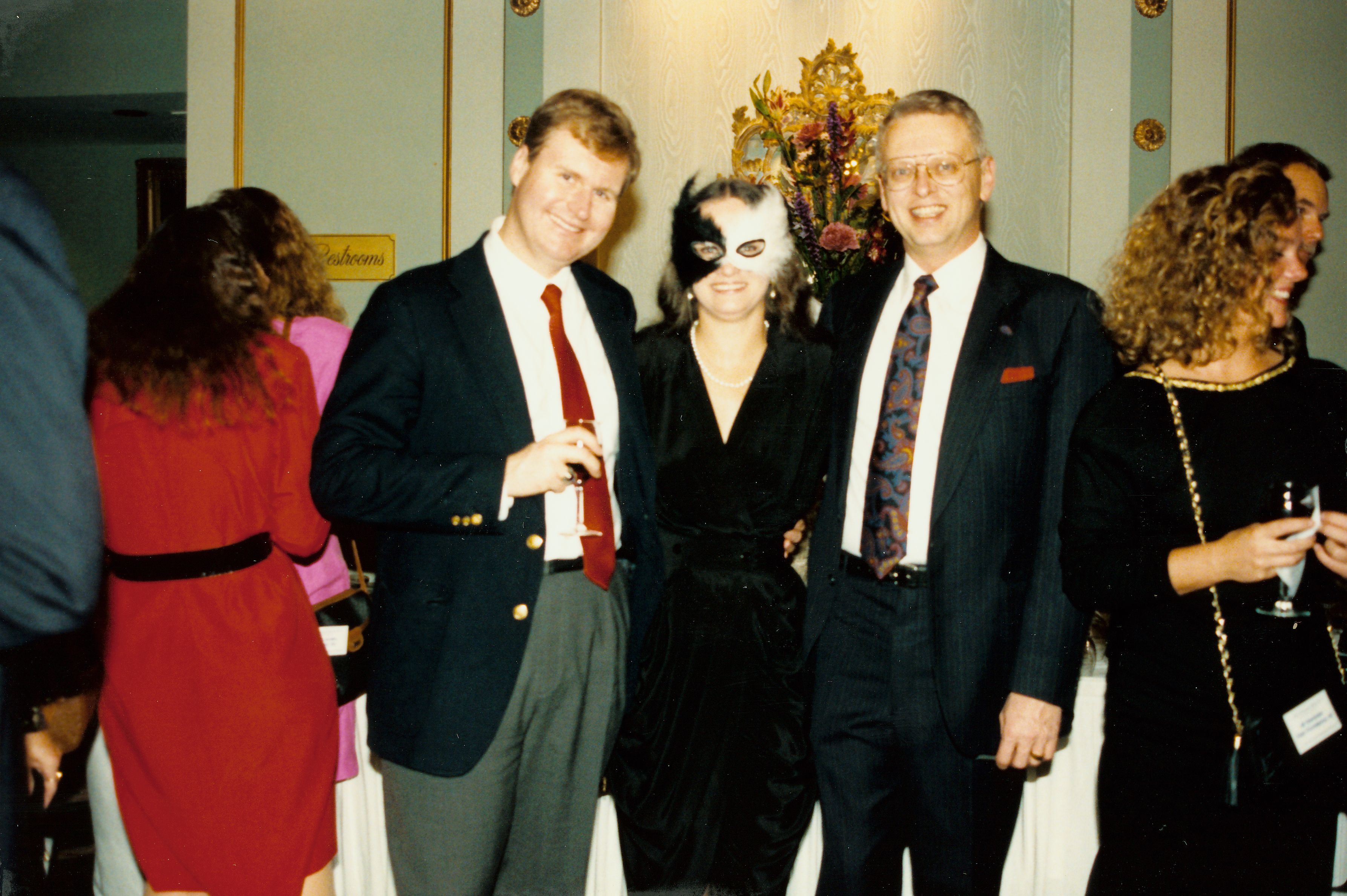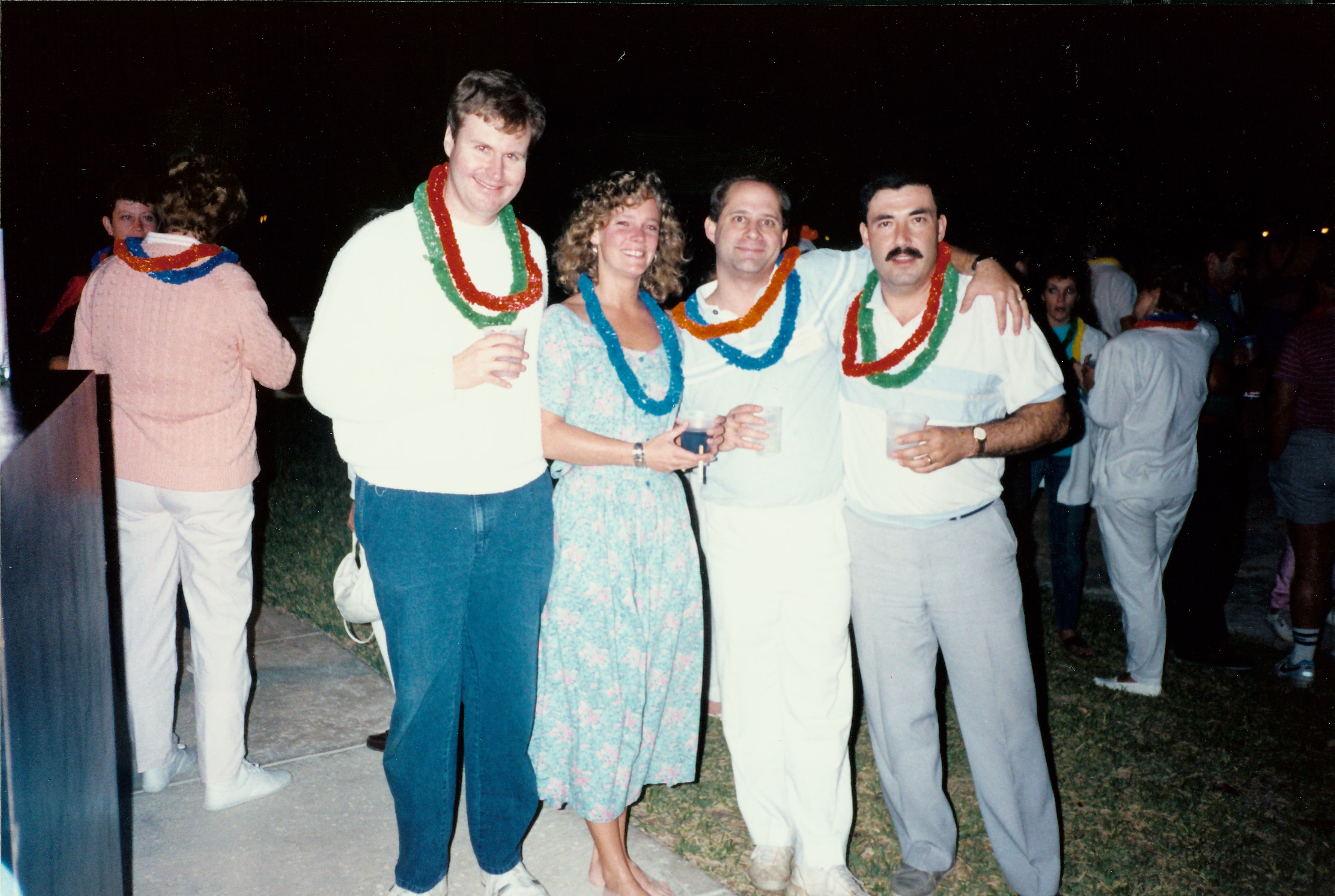
VHMA had the pleasure of catching up with Owen E. McCafferty, CPA, CVPM, FACFEI, CFF, CGMA, who served as VHMA president from 1993-1994.
|
Owen shared his memories, insights, and advice for VHMA as it celebrates 40 years. Below you will find his musings on a range of association-related topics.

Question: If not for VHMA, where would practice management be today?
OM: As my good friend Mark Opperman noted last month, 40 years ago practice managers were fending for themselves. Mark and VHMA pioneers generously shared their knowledge and combined their expertise to develop the professional body of knowledge that formed the foundation of VHMA.
This body of knowledge provided resources and information essential for managers to elevate their performance and help the practice thrive. Without the concepts and competencies contained in this professional domain, I’m not sure the role and responsibilities of practice managers would have advanced beyond those of the office manager. VHMA and the CVPM credential brought credibility and economic well-being to the position that might not have otherwise occurred. The brand “CVPM” implies that those who hold the credential have attained competency.
The CVPM credential was a tour de force for VHMA. The certification exam contained questions developed by those who were spearheading a movement to transform practice managers into highly qualified and knowledgeable professionals. VHMA’s loyal band of founding members pooled their talents to create a credentialing process that was and is unparalleled. If this group did not lead the effort, it’s difficult to speculate how certification would have evolved. It is quite possible that a private entity would have stepped in, but it is doubtful that those driving certification would exhibit the passion, expertise, and innovation shown by the CVPM credential’s trailblazers.
How do you define VHMA’s value proposition?
OM: Since its inception, VHMA’s strength is its body of knowledge. But practice management can be a lonely position because managers are intermediaries between owners and staff and struggle to balance their allegiance to both. Practice managers can find collegiality, trust, and community with VHMA---and that is what defines the association. The affinity between peers is key to professional growth and development. It also helps to reduce the isolation that managers experience as they juggle relationships and responsibilities.
Has VHMA’s focus shifted over the years?
OM:During its formative years, VHMA was heavily invested in analytics because members were eager to learn as much as they could about the economics of establishing and running a practice. VHMA amassed a significant body of knowledge in response and the information continues to be updated and expanded. More recently, the association has focused on human resources as managers seek to engage staff, attract and retain employees, and adapt to a changing work environment.
What were the big issues during your presidency?
OM: While serving as president, outreach to practice owners to educate them about the value of VHMA was a priority. Officers and board members assisted with this effort believing that informed owners were more likely to encourage their managers to participate in VHMA and provide financial support for membership dues, conference fees, and travel expenses.
During my tenure, Veterinary Study Groups, Inc., and Veterinary Management Groups were introduced, encouraging owners and managers to collaborate and share information and support. These efforts complemented VHMA's efforts.
I know that there are many fond memories from the early years. Would you care to share yours?
OM: From the beginning, VHMA conferences were characterized by the free exchange of ideas and opinions among trusted colleagues. “Firepit chats” were always a highlight. At the end of a full day of meetings and seminars, board members, officers, and others who wished to participate would convene to review the agenda, discuss topical issues, and reflect on the day’s events. Often the chats would continue until 4 a.m. We would then retire for a few hours and wake up in time to attend the first meeting of the day. After dinner, we would meet and continue where we left off!
Anyone who attended these meetings was also familiar with the “buddy system.” It was common for board members, officers, and active members to reach out to new attendees to ensure that they felt accepted and included. The buddy system effectively eased the transition from newbie to active participants.
For many years, the annual meetings alternated between locations in the U.S. and Canada because a number of VHMA leaders and contributing members hailed from Canada.
Last month we learned that there was an oral component to the CVPM exam. Why was it removed?
OM: The CVPM was a major development for VHMA. It added a level of professionalism to the position of practice manager and also helped to elevate income and augment standing with the practice. I was involved in writing questions for the early CVPM exam, which was both written and oral.
The oral component of the CVPM exam was included to evaluate the candidate’s familiarity with the content, to get a general idea of the applicant’s verbal skills, and to provide an opportunity for applicants to showcase their persuasive and extemporaneous skills.
Applicants were graded by three judges, but the oral test was eventually eliminated at the recommendation of leadership and our test psychometrician (test consultant) due to concerns that the judging could be subjective.
I am proud to report that I actually sat for the exam, responded to the questions, and earned the CVPM through the process that hundreds of CVPMs experienced. I, however, have been around long enough to have endured the angst of the oral exam!
Look into your crystal ball. Please identify the next big issue for VHMA. Any suggestions for reacting to it?
OM: The CVPM credential is highly regarded and proudly earned by the veterinary profession’s highest performing managers. The demand for CVPMs is soaring, which has created a shortage of CVPMs in the market. It is important that VHMA train the spotlight on CVPMs to promote its value and engage more managers in the certification process through networking and mentoring.
Sue Pfeiff, VHMA icon, board member, and CVPM mentored Michelle Gonzales-Bryant, CVPM, when they were both employed by a veterinary clinic in Arizona. Michelle, who started in the industry as a kennel attendant, earned the CVPM credential and is currently a corporate regional operations director for VCA, Inc., an operator of more than 900 animal hospitals in the U.S. and Canada. She currently serves as VHMA president---that’s where mentoring and certification can lead an individual!
Acknowledgments, kudos, and shout outs
OM:
Mark Opperman, the genius behind VHMA and CVPM.
DeeDee Prather, VHMA’s first Executive Director and a member of Mark’s staff.
Dr. John Sheridan who helped establish a UK counterpart to VHMA
Also, Tim and Mary Banker, Dr. Jim Bacon, Phyllis Weaver (May), Kurt May, Marty Bezner, Mary Koontz, Jill Ramsden, Nancy Lickey, Peter Ainslie, Ralph Duke, Pam Stevenson, Phil Farber, Walt, and Barb McPhail, and Ross Clark.
Many more also contributed selflessly to the development, organization, and advancement of this fine organization.

#practicepulse
-
#PracticePulse#MemberAnnouncement